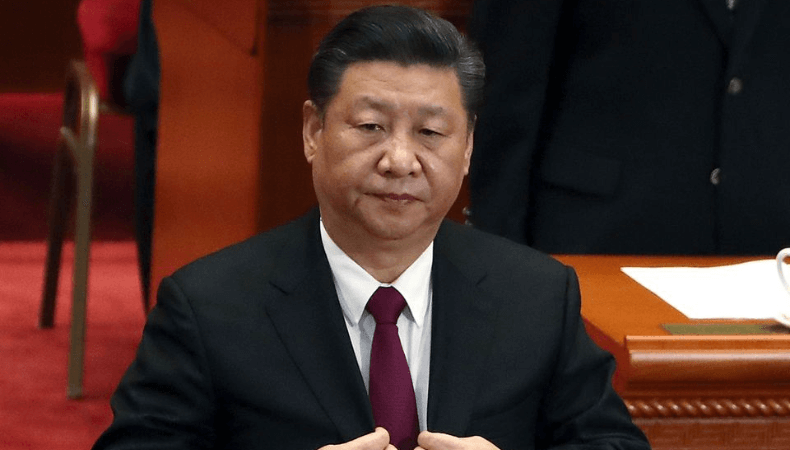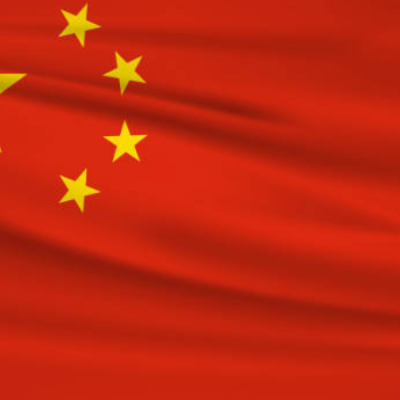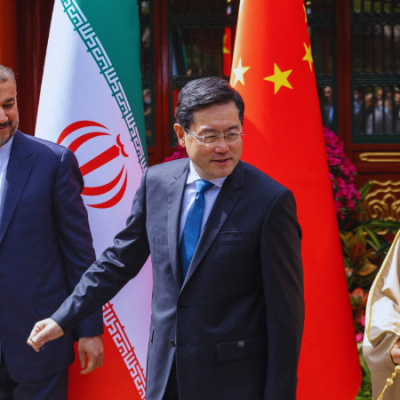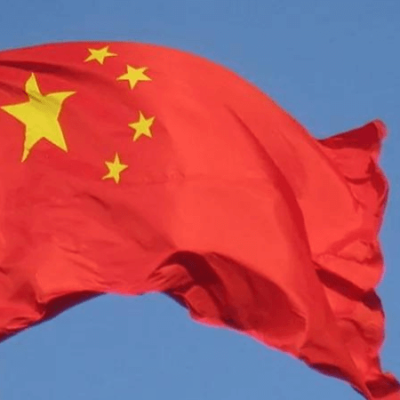China’s approach to Middle East illuminated by Red Sea crisis

In March 2023, the worldwide community saw an uncommon conciliatory accomplishment organized by Wang Yi, the previous Chinese External Minister. His part in brokering a peace ascension between two arch-rivals, Saudi Arabia and Iran, outlined China’s developing impact within the Middle East. Situated as a trusted arbiter, Wang Yi symbolized China’s developing political influence in a locale long-dominated by Western powers. Within the months that followed, China’s proactive engagement within the locale appeared to blur, raising questions around the profundity and sustainability of its impact.
Diplomatic Victory and Fading Influence
At the heart of China’s interest within the Middle East lies its reliance on the region’s copious vitality assets. China’s change into a net oil merchant three decades back stamped the starting of its vital center in the Middle East. Concerns around potential disturbances to vitality supplies, especially in the midst of the background of U.S. dominance within the locale, have provoked China to develop closer ties with Middle Eastern nations. This delicate adjusting act between securing vitality assets and exploring geopolitical flow has ended up a foundation of China’s outside approach within the Middle East.
Whereas China presents itself as a winner of peace and soundness on the worldwide stage, its activities within the Middle East propose a more self-interested approach. In spite of decades of investment and inclusion within the locale, China’s reaction to rising clashes and humanitarian emergencies has been lukewarm at best. Rather than effectively locking in diplomatic efforts to resolve clashes, China shows up to prioritize countering U.S. impact within the locale. This key calculus shows China’s broader desire to attest itself as a worldwide power and challenge the authority of the United States.
The complexity of China’s engagement within the Middle East is compounded by its hesitance to require unequivocal activity in the confrontation of rising emergencies. Whereas China looks to develop its claim interface and challenge U.S. authority, it must explore a fragile balance between strategy and self-interest. This delicate adjusting act highlights the challenges inalienable in China’s advancing part as a major player in worldwide undertakings.
Association with the Houthi movement
The Red Sea crisis is closely related to the Houthi movement due to the continuous strife in Yemen, where the Houthis have been locked in a drawn out guerilla against the Yemeni government and its partners since 2014. The Houthis, a Shiite revolt gather, have been battling against strengths faithful to the globally recognized government of President Abdrabbuh Mansur Hadi, who is supported by a Saudi-led fusion.
One viewpoint of the Red Sea crisis stems from the Houthi rebels’ control of a vital region along Yemen’s western coast, counting the harbor city of Hodeidah. This control permits the Houthis to debilitate oceanic activity through the Bab el-Mandeb strait, a pivotal checkpoint that interfaces the Red Sea to the Inlet of Aden and serves as an imperative course for worldwide exchange. Disturbances to shipping in this zone can have noteworthy suggestions for universal commerce, especially for nations intensely dependent on oceanic exchange courses, such as China.
Keep Reading
Besides, the Houthis have propelled assaults on commercial and military vessels passing through the Red Sea, focusing on Saudi oil tankers and other vessels having a place in nations supporting the Yemeni government. These assaults have raised concerns about the security of sea routes within the locale and have contributed to the escalation of pressures within the Red Sea range.
The strife in Yemen, fueled by the Houthi radical and the Saudi-led coalition’s military mediation, has in this way ended up interlaced with broader territorial security and geopolitical elements, counting the Red Sea crisis. It has adversely affected the trade channel and freight transport. Endeavors to address the Red Sea crisis must hence consider the continuous strife in Yemen and the part of the Houthi development in forming sea security within the locale.
Complexity of China’s engagement
China’s advancing part within the Middle East epitomizes a fragile adjusting act between strategy and self-interest, displayed by its vital center on securing vitality assets and countering U.S. impact within the locale. Whereas China’s discretionary triumph in brokering a peace ascension between Saudi Arabia and Iran showcased its developing impact, consequent occasions have cast question on the profundity of its commitment to territorial steadiness.
In spite of displaying itself as a champion of peace and steadiness, China’s reaction to raising clashes and helpful emergencies has been lukewarm, with its activities regularly prioritizing its own vital interface over broader territorial concerns. This raises necessary questions about China’s commitment to its declared standards of participation and worldwide harmony.
Additionally, China’s inactive position in the face of heightening pressures highlights the complexities of its outside policy objectives and the challenges of exploring a quickly changing geopolitical landscape. Whereas it seeks to challenge U.S. authority and state itself as a worldwide control, China must tread carefully to dodge compounding territorial insecurity.
As the Middle East proceeds to hook with geopolitical instabilities and heightening clashes, China’s part within the locale will undoubtedly shape the course of occasions. Whether China can strike an adjustment between progressing its claim interface and advance territorial soundness remains to be seen. However, one thing is evident: China’s engagement within the Middle East is a reflection of its advancement outside arrangement needs and its goals to reshape the worldwide arrangement in its favor.








